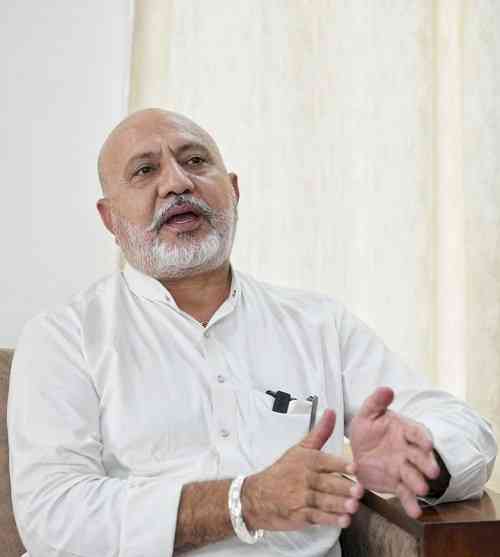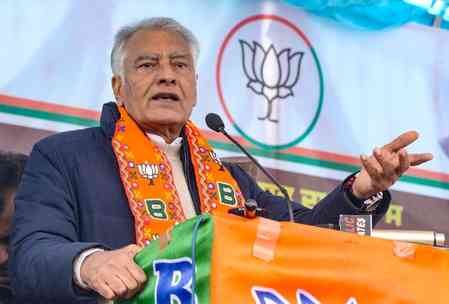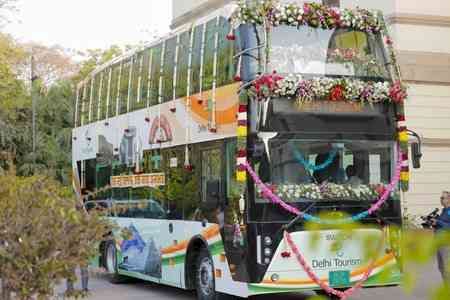PPBM writes to Union Finance Minister Nirmala Sitharaman
Representation was sent with regard to new changes in GST Law

Ludhiana: Punjab Pradesh Beopar Mandal (PPBM) under signatures of state president Piara Lal Seth and state general secretary Sameer Jain have written to Union Finance Minister Nirmala Sitharaman with regard to new changes in GST Law.
Stating this here today, the PPBM state secretary Mohinder Aggarwal told that the representation reads that input tax credit, at the advent of GST, was widely propagated to flow to the taxpayer with minimum hassles. Seam less credit with least restriction was the unique selling proposition of GST Law. Courts have recognized input tax credit as vested right of the assesse, which once accrued cannot be taken away by any amount of legislation. The conditions imposed by the law makers for availing input tax credit at the time of framing of GST Law were well understood and accepted by the taxpayer through various interpretation placed by the courts.
However, in the name of restricting fake credit regarding which the government says that 12,000 cases have been registered, more than 1.25 crores registered taxpayers are being now served with filtered input tax credit. The promises made under law are being belied by using delegated legislative powers through hind doors.
Notifications set into motion since 9-10-2019 till 22-12-2020 all stand testimony to the facts stated above. In October 2019 the government said that taxpayer shall be allowed ITC on the basis of invoices uploaded/ furnished by the supplier and not on the basis of invoice received by the buyer with tolerable limit of 20% over such invoices. The limit was later pruned to 10% w.e.f. 01-01-2020 and then further curtailed to 5% w.e.f. 01-01-2021. Circular issued in November 2019 further restricted the passing on of credit till due date of filing of statement of outward supplies by the supplier. As if it was not enough the government further set out a new device in the form of GSTR 2B to curb even the invoices uploaded by the supplier after due date of statement of outward supplies. Further the officers have been empowered to suspend registration without opportunity of being heard and then cancel the registration number of registered taxpayers for all significant differences and anomalies between input tax credit in return and GSTR 2A/2B. Now what is “significant difference and anomaly” is something to be decided by the wits of officers on duty. The position of persons claiming refunds is even more precarious as these persons have been restricted to apply for refund which goes strictly beyond the invoices uploaded by the supplier. The tolerable limits of 20%/10% and 5% are also not applicable in these cases by virtue of circular issued on 31-03-2020. The officials are further interpreting these provisions a manner which hits the taxpayer in the hardest possible manner by making portal shenanigans an unwritten but religiously observed law.
It is quite agonizing to observe that taxpayer who was once recognized as one of stakeholders is not at the receiving end of arbitrary regulations.
There cannot be any mincing of words while saying that taxpayers are being made scapegoat of the failure of policymakers and bureaucrats in implementing the GST Law in its original form. The law as originally conceived provided two-way check before rejecting any input tax credit. If supplier fails to report valid ITC, the buyer was proposed to report such missing invoices and put them into system for confirmation of the supplier. The new return system which also provided these features has also been scrapped. And now the taxpayers are being discriminated in a manner to maximize their liability. Compulsory payment of 1% tax through cash ledger against monthly supplies of 50 lacs and above is a very harsh step to block the working capital of the taxpayer without providing any resort to release these blocked funds.
He said the representation further reads that registrations under the laws prevailing before GST have been a major hindrance, in commencing a new business. The registration process was promised to be technology driven. Easy and fast registration was an important step which was hailed by the taxpayers. But the new changes have provided unbridled powers for physical verification in registrations. No reason needs to be assigned for carrying out this pre-registration physical verification. Any case “deemed fit” for physical verification is actually fit for such verification. Besides physical verification of business premises verification of documents as deemed fit may also be carried out by proper officer. In this regard it may be noted that SOP was issued by CBIC on 27-11-2020 for cases where deemed registrations have been granted between 21-08-2020 to 16-11-2020, which is most likely to be implemented in physical verifications conceived under new rules and if implemented, is going to be nightmare for taxpayers.
As per SOP, during the physical verification, the officer, among other things, would also verify the following details:
a. In case the applicant intends to carry out manufacturing activity, whether capital goods, if required for the said manufacturing activity, have been installed.
b. Electricity connection, bills paid in the relevant period.
c. Size of the premises – whether it is commensurate with the activity to be carried out by the applicant.
d. Whether premises is self-owned or is rented and documents relating ownership/ registered lease of the said property. In case of doubt, enquiry may also be made from the landlord/ owner of the property in case of rented / leased premises.
e. No of employees already employed and record of their employment
f. Aadhaar and PAN of the applicant and its proprietor, partners, Karta, Directors as the case may be and the authorised signatories.
g. Bank’s letter for upto date KYC.
In addition to the physical verification conducted, the proper officer, in the interest of revenue, would carry out the preliminary financial verification of the registrants by seeking the following documents and carrying out its scrutiny:
a. ITRs of the company / LLP from the date of incorporation or for last three financial years, whichever is less. ITRs of proprietor, partners, Karta, etc. may be taken in other cases.
b. The status of activity from the date of registration of all the bank account(s) linked to registration; the same may be taken through a letter / undertaking from the applicant. Phone number declared / linked to each of the bank accounts may also be obtained.
c. Quantum of capital employed/proposed to be employed.
d. Out of the amount mentioned at (c) above:
(i) Own Funds:
(ii) Loan Funds: (indicate the names, complete address, PAN and amount borrowed from each such lender separately):
e. In case of own funds, also check the audited balance sheet for previous financial year, where available, in addition to the Income Tax Returns mentioned in (a) above.
f. In case of loan funds check the proposal submitted to the Bank/FI for approval of the loan and the maximum permissible bank finance as per such proposal, where the amount is proposed to be borrowed from a Bank and/or FI.
“Ease of Doing business” is there being therefore converted into “tease of doing business”. The plight of business community seems to be last thing on the plate of government. With this system in implementation, there is hardly any person who shall be granted registration. Red tapism, arbitrariness and harassment shall blossom at their full.
3. Per day distance Validity of E way bill curtailed by 50% w.e.f. 01-01-2021
For a normal transportation vehicle one day validity of e-way bill was allowed for travelling to 100 kms or part thereof. For every another 100 Kms or part one additional day was allowed. So, a truck travelling 1760 Kms was allowed validity of 18 days from the midnight of date of generation of e way bill.
However, NN 94/2020 dated 22-12-2020 has increased the distance from 100 kms to 200 kms and has thus reduced the period of validity of e way bill. Thus, a truck travelling 1760 Kms shall be allowed validity of 9 days from the midnight of date of generation of e way bill.
Thus, the period of validity of e way bill has been reduced to 50% w.e.f. 01-01- 2021.
In the times of fog, hilly areas, small snags it shall be very hard and harsh to expect the transporters to observe new regulations. A large number of cases of expiry of e way bill shall be transformed into penalties. The taxpayers and transporters shall always have to at their toes. Once officer on road imposes penalty the appellate authority in majority of cases shall confirm demand without providing any heed to the pleadings of the assesse. Further, GST appellate tribunal has still not been formed and thus assesse shall be at the mercy of the officers on road.
Concluding, the representation prayed that these changes should be closely scrutinized by the government and for the time being the operation of these changes should be suspended because if not stopped shall bring the already ailing businesses to grinding halt. These changes if implemented shall also deteriorate the ranking of country in “ease of doing business”. The main purpose of these changes appears to make GST a subjective law, where in the compliant taxpayers shall suffer the most.



 cityairnews
cityairnews 










